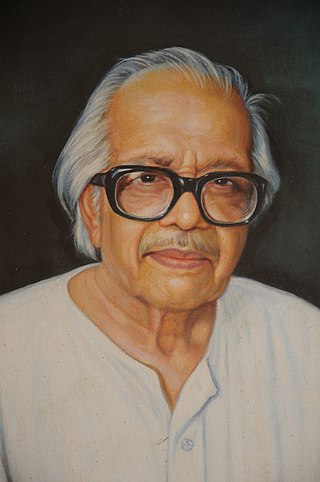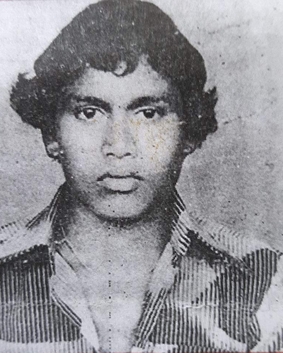
Konkani is an Indo-Aryan language spoken by the Konkani people, primarily in the Konkan region, along the western coast of India. It is one of the 22 scheduled languages mentioned in the Indian Constitution, and the official language of the Indian state of Goa. It is also spoken in Karnataka, Maharashtra, Kerala, Gujarat & Daman, Diu & Silvassa.

Goan literature is the literature pertaining to the state of Goa in India.
The Konkani people are an Indo-Aryan ethnolinguistic group native to the Konkan region of the Indian subcontinent who speak various dialects of the Konkani language. Konkani is the state language of Goa and also spoken by populations in coastal Karnataka, coastal Maharashtra, and Kerala. Other Konkani speakers are found in Gujarat state. A large percentage of Konkani people are bilingual.

Media in Goa refers to the newspapers, magazines, radio stations, cable and television networks and online media in India's smallest state. Over the past two-and-half decades, the Goa-linked online media has also grown.
Goan Catholics are an ethno-religious community of Indian Christians belonging to the Latin Church of the Catholic Church from the Goa state, in the southern part of the Konkan region along the west coast of India. They are Konkani people and speak the Konkani language.
Goans is the demonym used to describe the people native to Goa, India, who form an ethno-linguistic group resulting from the assimilation of Indo-Aryan, Dravidian, Indo-Portuguese, and Austro-Asiatic ethnic and/or linguistic ancestries. They speak different dialects of Konkani language natively, collectively known as Goan Konkani. "Goanese" is an incorrect term for Goans.
Goan Catholic literature is diverse.

Ravindra Kelekar was a noted Indian author who wrote primarily in the Konkani language, though he also wrote in Marathi and Hindi. A Gandhian activist, freedom fighter and a pioneer in the modern Konkani movement, he was a well known Konkani scholar, linguist, and creative thinker. Kelekar was a participant in the Indian freedom movement, Goa's liberation movement, and later the campaign against the merger of the newly formed Goa with Maharashtra. He played a key role in the founding of the Konkani Bhasha Mandal, which lead the literary campaign for the recognition of Konkani as a full-fledged language, and its reinstatement as the state language of Goa. He authored nearly 100 books in the Konkani language, including Amchi Bhas Konkaneech, Shalent Konkani Kityak, Bahu-bhashik Bharatant Bhashenche Samajshastra and Himalayant, and also edited Jaag magazine for more than two decades.
Konkani in the Roman script, commonly known as Romi Konkani or Romi Konknni refers to the writing of the Konkani language in the Roman script. While Konkani is written in five different scripts altogether, Romi Konkani is widely used. Romi Konkani is known to be the oldest preserved and protected literary tradition beginning from the 16th century AD.
The Konkani language agitations were a series of protests and demonstrations in India, concerning the uncertain future and the official status of the Konkani language. They were held by Goans in the then union territory of Goa, Daman and Diu governed at the time by the Maharashtrawadi Gomantak Party. The protests involved citizen journalism, student activism and political demonstrations.

Luís de Menezes Bragança, alternatively spelled as Luís de Menezes Braganza, was a prominent Indian journalist, writer, politician and anti-colonial activist from Goa. He was one of the few Goan aristocrats who actively opposed the Portuguese colonisation of Goa. During his lifetime, Menezes Bragança was widely hailed around the Lusosphere as "O Maior de todos" and in the Indian mainland as "The Tilak of Goa".

Special Status for Goa is a proposal to make the Goa state as an entity with additional powers within the Indian Union. Proponents of the idea have argued that Government of Goa should be given certain powers by the Indian Government by amending Article 371I of the Constitution of India, to preserve the unique culture and history of this subregion of Konkan. These powers would allow the Government of Goa to enact legislation to protect the private property rights of the Goans and put restrictions on the sale of land by Goans.

Goa is a state on the southwestern coast of India. It is situated within the Konkan region, geographically separated from the Deccan highlands by the Western Ghats. It is bound by the Indian states of Maharashtra to the north, and Karnataka to the east and south, with the Arabian Sea in the west. It is India's smallest state by area and fourth-smallest by population. Goa has the highest GDP per capita among all Indian states, two and a half times as high as the GDP per capita of the country as a whole. The Eleventh Finance Commission of India named Goa the best-placed state because of its infrastructure, and India's National Commission on Population rated it as having the best quality of life in India. It is the third-highest ranking among Indian states in the human development index.
Goa is currently India's smallest state on the west coast, and its writers have written in many diverse languages. Poetry is a small and scattered field in the region, and this page makes an attempt to acknowledge those who have contributed to the field. It includes those listed below who have contributed to poetry in and from Goa, as well as those writing poetry in Goa. Poetry related to Goa is known to have been written in Konkani, in Portuguese, English and Marathi, apart from other regional, national and international languages to a lesser extent.

The Portuguese controlled Goa until 1961, when India took over. Only a very small fraction of Goans speak Portuguese nowadays. Although an essential religious language, there were 1,500 students learning Portuguese in Goa in 2015; totaling a number of 10,000 – 12,000 Portuguese speakers in the state.
Fr. Vasco do Rego SJ was a Jesuit priest from the region of Goa, who played a significant role in the promotion of Konkani language, literature and music, particularly after the Annexation of Goa. He was the editor of the religious monthly Dor Mhoineachi Rotti for many years.

Nevel Lourdes Sacramento Gracias, popularly known as Fr. Nevel Gracias, was an Indian actor, singer, composer, director, playwright, editor and diocesan priest from Goa. He predominantly worked on the Konkani stage and is best known for his lenten tiatrs. He was regarded as a one-man show and served in the general council of the Tiatr Academy of Goa.

Floriano Vaz was an Indian writer and activist from Goa. He was the first martyr of the scheduled tribe community who fought for the official status of the Konkani language during the Konkani language agitation.









